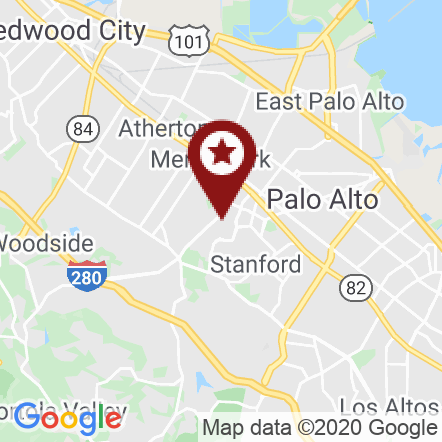New to MyHealth?
Manage Your Care From Anywhere.
Access your health information from any device with MyHealth. You can message your clinic, view lab results, schedule an appointment, and pay your bill.
ALREADY HAVE AN ACCESS CODE?
DON'T HAVE AN ACCESS CODE?
NEED MORE DETAILS?
MyHealth for Mobile
Trauma Service
Trauma Service
Serving over 2.6 million people, Stanford Medicine is the only Level 1 Adult and Level 1 Pediatric Trauma Center verified by the American College of Surgeons (ASC) on the peninsula of the San Francisco Bay Area. We provide specialized care to over 3700 patients per year and handle 20-25 consults daily. We offer exceptional 24-hours-a-day onsite trauma specialists in a state-of-the art facility, fully equipped to handle any medical or surgical emergency.

Garden Level
Palo Alto, CA 94304
Phone: 650-736-5800 Getting Here
Our Doctors
Our Advanced Practice Providers
Care and Treatment
Distracted and Impaired Driving
Nine people in the United States are killed every day in crashes involving a distracted driver. (Source: Centers for Disease Control – CDC). These crashes and deaths are preventable.
The National Highway Traffic Safety Administration (NHTSA) describes distracted driving as:
- Visual: taking your eyes off the road
- Manual: taking your hands off the wheel
- Cognitive: taking your mind off of driving
Distractions are anything that takes your attention away from driving. Examples include using your phone (texting, talking, scrolling), eating, adjusting music or navigation, brushing your hair, and disruptive passengers.
What can you do to prevent injuries and deaths due to distracted driving?
- Put your phone away while driving—studies show that even hands-free driving takes attention away from the road and increases your chance of a crash.
- NEVER text and drive. Sending a text message takes at least 5 seconds, which is equivalent to driving 60mph, with no eyes on the road for the length of a football field. Texting is the most concerning distraction, as it takes your eyes, hands, and attention off the road.
- California law states that it is illegal for drivers under 18 years old to talk on the phone while driving holding the phone or hands-free.
- Follow the Graduated Drivers Licensing Law (GDL). Inexperienced drivers are more frequently involved in crashes, and distractions from other passengers increase risk.
Learn more about distracted driving at www.impactteendrivers.org.
The Injury Prevention Program in Trauma Services at Stanford Health Care works with Impact Teen Drivers, California Highway Patrol, Traffic Safe Communities in Santa Clara County, and others to provide high school classroom and assembly presentations on distracted driving. To learn more, please email Bobby Moser at Bmoser@Stanfordhealthcare.org or call 650-724-9369.
Impaired Driving
Impaired driving happens when someone operates a vehicle while impaired by substances such as marijuana, illicit drugs, prescription or over-the-counter medicines, and/or alcohol. Driving while impaired by any substance can be deadly.
Motor vehicle crashes involving alcohol-impaired drivers kill one person every 45 minutes in the United States. That’s 32 people every day. (Source: Centers for Disease Control – CDC).
Underage Drinking & Driving
Underage drinking is associated with teen deaths from motor vehicle crashes, homicide, suicide, and other risky behaviors. The Youth Risk Behaviors Survey (CDC) reports that:
- 23% of high school students drank alcohol during the past 30 days
- 16% of high school students used marijuana during the past 30 days
- 12% of high school students had misused prescription opioids
Research has shown that the main reason that teens refuse to drink alcohol is that they worry about what their parents/caregivers will think of them. Talk to your teens and make sure they understand the consequences of unsafe behaviors. Parent/caregiver involvement is extremely important.
Some important facts about underage drinking:
- California has a zero-tolerance law – a blood alcohol content (BAC) of less than 0.01%.
- If pulled over by law enforcement with a BAC of 0.01% or over, the police can confiscate the license of a driver under 21 years old.
- Parents may not provide alcohol to any minor in California.
- Adults may not buy alcohol for teens under 21-year-old.
- If a teen is injured in a car crash after consuming alcohol, the adult providing the alcohol can be sentenced to 6 months to one year in jail.
The Injury Prevention Program in Trauma Services at Stanford Health Care collaborates with community partners to provide support and education on the consequences of underage drinking and driving. These programs include participation in the Every 15 Minutes Program, and supporting the Alcohol and Impaired Driving Workgroup from Traffic Safe Communities Network in Santa Clara County.
For Patients
Patients may be transferred using Stanford Life Flight air or ground transport.
Stanford Health Care is known worldwide for the advanced patient care provided by its doctors and staff. We also provide a wide range of guest services and amenities to our patients and visitors. Learn more about preparing for a hospital stay, billing and financial services, and our other support programs in Patients & Visitors.
International Patients
Phone: +1 650-723-8561
Email: IMS@stanfordhealthcare.org
IF YOU ARE EXPERIENCING A MEDICAL EMERGENCY, DIAL
9-1-1
For Health Care Professionals
PHYSICIAN HELPLINE
Phone: 1-866-742-4811
Fax: 650-320-9443
Monday – Friday, 8:30 a.m. – 5 p.m.
TRANSFER CENTER
Phone: 1-800-800-1551, 24 hours - 7 days a week
Stanford Health Care provides comprehensive services to refer and track patients, as well as provides the latest information and news for physicians and office staff. For help with all referral needs and questions, visit Referral Information.




